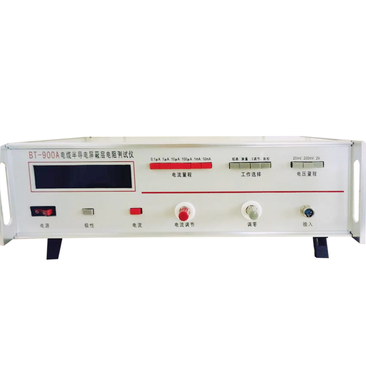Customized Tensile Testing Equipment for Enhanced Material Strength Evaluation and Quality Control
Custom Tensile Testing Machines A Key to Material Strength Assessment
In an era of technological advancement and industrial growth, the demand for precise material testing has never been higher. Custom tensile testing machines play a pivotal role in assessing the mechanical properties of materials, providing invaluable data that informs product design, quality control, and safety standards. These machines, tailored to meet specific testing requirements, are essential for industries such as aerospace, automotive, construction, and manufacturing, where the reliability of materials is paramount.
Understanding Tensile Testing
Tensile testing, often referred to as tension testing, involves applying a controlled load to a sample material until it deforms or fractures. The process measures key material properties, including tensile strength, yield strength, elongation, and modulus of elasticity. The results from tensile tests are crucial for engineers and designers, as they help predict how materials will behave under various stress conditions.
The fundamental principle behind tensile testing is relatively simple a specimen is placed in a testing machine equipped with grips that hold it in place. The machine then applies a pulling force at a constant rate until the specimen undergoes failure. The data collected during this process allows for the creation of stress-strain curves, which graphically represent material behavior under tension.
The Need for Customization
While many off-the-shelf tensile testing machines exist, there are scenarios where standard models cannot meet specific testing requirements. Factors such as material thickness, width, shape, and environmental conditions can vary significantly across different applications. In such cases, custom tensile testing machines become indispensable.
Custom machines can be designed to accommodate specific specimen sizes, shapes, and materials, ensuring accurate and reproducible results. For instance, industries dealing with composite materials or metal alloys often require specialized grips and fixtures to securely hold the test samples without introducing artifacts that could skew results. Furthermore, some applications may necessitate testing under extreme temperatures or corrosive environments, necessitating the use of durable materials and specialized engineering.
custom tensile testing machine

Benefits of Customization
The advantages of investing in custom tensile testing machines are manifold. Firstly, they provide flexibility in testing procedures, allowing organizations to conduct a wider range of tests than standard machines would permit. By tailoring machines to specific materials and configurations, manufacturers can conduct more accurate assessments of material properties, which ultimately leads to better product performance.
Secondly, custom machines can incorporate advanced technology such as digital data acquisition systems, real-time monitoring, and automation features. This integration enhances efficiency and reduces the possibility of human error during testing. Consequently, organizations can achieve high-throughput testing while maintaining precision, making the overall testing process faster and more reliable.
Additionally, custom tensile testing machines can be designed with comprehensive safety features. The risks associated with material testing can be significant, particularly as the forces involved can be substantial. Engineers can incorporate safety mechanisms, such as emergency stop features and protective enclosures, to ensure safe operation, thereby protecting both personnel and equipment.
Conclusion
As industries continue to embrace innovative materials and manufacturing processes, the importance of accurate material testing cannot be overstated. Custom tensile testing machines provide a tailored solution that meets the unique challenges faced by various sectors. By offering flexibility, enhanced accuracy, and improved safety, these machines are integral to ensuring that materials meet rigorous performance standards.
In conclusion, investing in custom tensile testing machines not only enhances the reliability of materials but also supports the pursuit of excellence in product development. With the proper testing infrastructure in place, organizations can confidently push the boundaries of innovation while ensuring that their products meet or exceed safety and performance expectations. As we progress into a future driven by advanced materials and engineering, the role of custom tensile testing machines will only become more essential in safeguarding the integrity of our manufacturing landscape.
-
Why the Conductor Resistance Constant Temperature Measurement Machine Redefines Precision
NewsJun.20,2025
-
Reliable Testing Starts Here: Why the High Insulation Resistance Measuring Instrument Is a Must-Have
NewsJun.20,2025
-
Flexible Cable Flexing Test Equipment: The Precision Standard for Cable Durability and Performance Testing
NewsJun.20,2025
-
Digital Measurement Projector: Precision Visualization for Modern Manufacturing
NewsJun.20,2025
-
Computer Control Electronic Tensile Tester: Precision and Power for the Modern Metal Industry
NewsJun.20,2025
-
Cable Spark Tester: Your Ultimate Insulation Assurance for Wire and Cable Testing
NewsJun.20,2025
 Copyright © 2025 Hebei Fangyuan Instrument & Equipment Co.,Ltd. All Rights Reserved. Sitemap | Privacy Policy
Copyright © 2025 Hebei Fangyuan Instrument & Equipment Co.,Ltd. All Rights Reserved. Sitemap | Privacy Policy
